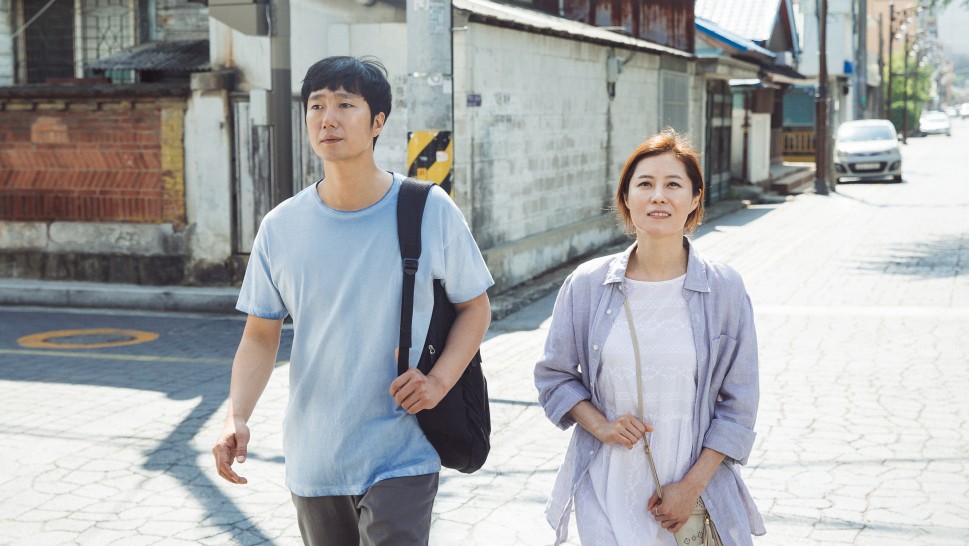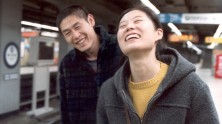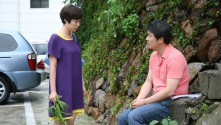
Ode to the Goose
(Joh-eun-nal)
With Park Hae-il, Moon So-ri, Jung Jin-young.
South Korea, 2018, DCP, color, 122 min.
Korean, English, Mandarin and Japanese with English subtitles.
DCP source: Parallax Film
The latest film by the still, in the US, undiscovered Chinese-Korean filmmaker Zhang Lu (b. 1962) is a good-humored and soulful meditation on both middle-age love and deceptively sudden life decisions, using a fractured narrative structure to follow the errant course of a spontaneous friendship between a recent divorcée and an awkward younger man, an aspiring poet who happens to be a close acquaintance of her ex. Moon So-ri is fascinating as a woman suddenly freed from the weight of past obligations and willfully determined to reinvent herself. Seizing on a sudden inspiration to take a trip with her new friend to the southern coastal town of Gunsan, she leads the way through a series of revelatory encounters that test and define her new identity. Traces of Jim Jarmusch and Hong Sang-soo linger throughout Ode to the Goose, which is also defined by a rich and wholly original subtext about the awkward place of Chinese-Koreans and Japanese-Koreans in contemporary Korean society and identity. Two women appear as striking complements and guides of sort, older and younger, to Moon So-ri’s protagonist; the ravishing Sixties starlet Moon Sook, who magically reappears as the wise and elegant proprietor of a noodle restaurant, and Parasite star Park So-dam as a traumatized Alice in Wonderland figure emerging from behind a surveillance camera looking-glass. The film’s title comes from a Chinese poem, one of the many historical and literary references in Ode to the Goose to the deeper, more complicated history of Korean national identity. Key to this quietly powerful subject of the film are the constant, insistent references to legendary Chinese-born Korean poet Yun Dong-ju, whose resistance to Japanese colonization resulted in his untimely death and martyrdom in a Japanese prison.














